Within its sustainability strategy, Sp-Berner’s business model is based on three main areas of action:
To be a company committed to the Paris Agreement and in line with society's demands. Having our own solar photovoltaic plant is proof of our commitment to reducing CO2 emissions into the atmosphere.
To continue to incorporate recycled raw materials, the majority of which are produced in our own recycling plant, into our final products. By using alternative and green energies, we will progressively reduce our dependence on fossil fuels.
To be a company that promotes technological innovation as a means of transformation towards more sustainable business models. Our sustainable and competitive production provides added value in comparison with our competitors.
In addition to continuously expanding its activities in the recycling and reuse of resources, Sp-Berner inaugurated a new photovoltaic generation plant in 2022. Located on the rooftop of its production centre and headquarters in Aldaya (Valencia), this facility covers an area equivalent to 3 football pitches and generates 5,600,000 kWh of solar energy per year.
This plant prevents the emission of 1,500 tonnes of CO2 into the atmosphere, which is the equivalent of planting 75,000 trees per year.
Its R+D+I Department is constantly searching for new environmentally friendly materials and products. It seeks to optimise production systems with new technologies and by using the most sustainable raw materials.
By 2025, Sp-Berner aspires to maximise the total manufacturing capacity of its plant. This means that it will be able to produce the same amount of recycled plastic as it currently consumes, reaching a production capacity of 50,000 tonnes of recycled plastic per year.
In this facility, all wastewater generated by the processes is treated in its in-house wastewater treatment plant for re-use in the processes. In addition, all process rejects that are not materially recoverable are managed by an authorised waste manager.
Its materials experts elaborate unique formulations in the development of new recycled materials. In some cases, this collaboration is carried out in conjunction with some of its key customers to meet their quality requirements during the product injection moulding process.
Sp-Berner is the company that processes the most recycled materials both nationally and internationally through its Sp-Berner Endless Lifecycle® technology. It has developed a working method that is almost unique in the world, in which a single company creates new end-use products from plastic waste.
The material transformation processes are subject to exhaustive quality controls at the plant and in the laboratory. These controls include the reception, the process itself and the finished product. The main tests to which they are subjected are:
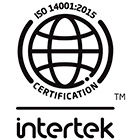
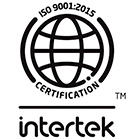
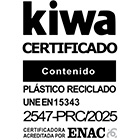
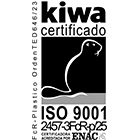
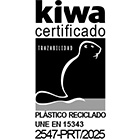
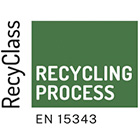
This plant transforms both post-consumer and post-industrial material from its own facilities. The result is a real circular economy model, practically unique in the plastics sector. Sp-Berner conducts the integral waste management from this plant. It follows a waste treatment process involving the phases of reception, washing, shredding and subsequent pelletising.
This industrial process results in new recycled raw material in the form of pellets. These pellets are then used to manufacture new products in Sp-Berner’s injection moulding plants.
In 2010, Sp-Berner pioneered the market by launching an ambitious plan. Since then, it has been growing steadily and has managed to leave a highly positive environmental footprint. In fact, more than 40% of the recycled raw material used in its products comes from its own recycling plant.
Over the past decade, the company has invested more than 100 million euros in improving its facilities, as well as in R+D+I activities. It is committed to improving its facilities in order to manufacture competitive products that meet the needs of an increasingly demanding consumer.
Since 2008, we have been implementing an environmental management system that ensures compliance with environmental legislation. By controlling the impact of our activities, products and services on the environment, we aim to demonstrate and ensure our solid commitment to the environment.
The efficient management of packaging waste from the products that Sp-Berner places on the market requires the collaboration and coordination of different operators that participate in an Integrated Management System (IMS) for packaging and packaging waste. As a result, we are able to close the cycle: from the design and manufacture of the package, the packaging, distribution and marketing of the product, to the recovery of the packaging waste and its transformation into a new raw material. This is made possible thanks to recycling.
For this reason, Sp-Berner is a member of Ecoembes, a non-profit public limited company that coordinates the Integrated Management System (IMS) for the recovery and recycling of used packaging and light packaging waste (plastic, metal and brik packaging) and paper-cardboard packaging.
All packaging launched by Sp-Berner is printed with the Green Dot, which symbolises the company’s environmental commitment as a member of Ecoembes and its compliance with Law 11/1997 on packaging and packaging waste.
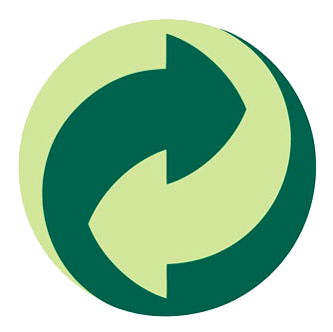
The Recycling business unit markets a wide range of recycled materials that are suitable for subsequent industrial use, including:
Thus, by opting for recycled materials instead of new ones, companies can reduce their production costs and improve their profitability. This is particularly relevant in a context where sustainability and environmental responsibility are increasingly valued by consumers.
Sp-Berner’s recycled material is a smart and sustainable choice for companies interested in reducing their environmental impact and improving their profitability.